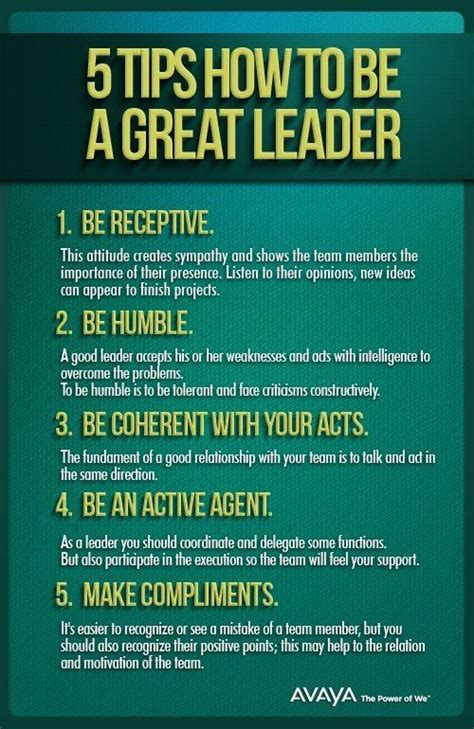How to Become a Great Leader: A Comprehensive Guide
Becoming a great leader isn't about inherent traits; it's a journey of continuous learning, adaptation, and self-improvement. This guide provides actionable steps and strategies to help you cultivate your leadership skills and inspire those around you.
Understanding Leadership: Beyond the Title
Leadership isn't solely about holding a position of authority. True leadership stems from influence, inspiring others to achieve a shared vision. It's about empowering your team, fostering collaboration, and driving positive change. Great leaders aren't born; they're made through dedication and consistent effort.
Key Qualities of a Great Leader:
- Vision: A clear, compelling vision is the cornerstone of effective leadership. It provides direction, motivates individuals, and unites teams towards a common goal.
- Communication: Effective communication is crucial. Great leaders clearly articulate their vision, actively listen to their team, and provide constructive feedback.
- Empathy: Understanding and responding to the emotions and needs of your team builds trust and fosters a supportive environment.
- Integrity: Honesty, transparency, and ethical conduct build credibility and respect. Leaders with integrity inspire confidence and loyalty.
- Decisiveness: The ability to make timely and informed decisions, even under pressure, is vital for effective leadership.
- Accountability: Taking responsibility for both successes and failures builds trust and demonstrates commitment.
Developing Your Leadership Skills: A Practical Approach
This section outlines practical steps you can take to develop your leadership skills and become a more effective leader.
1. Self-Reflection and Self-Improvement:
- Identify your strengths and weaknesses: Honest self-assessment is critical. Understanding your strengths allows you to leverage them effectively, while acknowledging weaknesses enables you to focus on improvement.
- Seek feedback: Regularly solicit feedback from colleagues, mentors, and subordinates. Constructive criticism is invaluable for growth.
- Continuous learning: Leadership is a lifelong journey. Continuously seek opportunities to expand your knowledge and skills through books, courses, workshops, and mentoring.
2. Mastering Communication and Emotional Intelligence:
- Active listening: Pay close attention to what others are saying, both verbally and nonverbally. Ask clarifying questions and summarize to ensure understanding.
- Clear and concise communication: Articulate your thoughts and ideas clearly and concisely, avoiding jargon and ambiguity.
- Develop emotional intelligence: Understanding and managing your own emotions, and empathizing with others, is crucial for building strong relationships.
3. Building Strong Teams and Fostering Collaboration:
- Delegate effectively: Assign tasks based on individuals' strengths and capabilities, empowering them to take ownership.
- Foster a collaborative environment: Encourage open communication, teamwork, and mutual respect.
- Provide constructive feedback: Offer regular feedback, both positive and constructive, to help team members improve and grow.
4. Leading with Vision and Inspiration:
- Develop a compelling vision: Create a clear and inspiring vision that motivates your team and aligns with the overall organizational goals.
- Set clear goals and expectations: Ensure everyone understands their roles and responsibilities, and how their contributions contribute to the bigger picture.
- Celebrate successes: Acknowledge and celebrate accomplishments, both big and small, to boost morale and reinforce positive behavior.
Maintaining Your Leadership Effectiveness: Ongoing Strategies
Becoming a great leader is an ongoing process. These strategies will help you maintain your effectiveness over time.
- Stay adaptable: The business landscape is constantly evolving. Embrace change and adapt your leadership style to meet new challenges.
- Seek mentorship: Find a mentor who can provide guidance, support, and challenge you to grow.
- Embrace failure as a learning opportunity: Don't be afraid to make mistakes. Learn from them and use them as opportunities for growth.
By consistently applying these principles and strategies, you can cultivate your leadership skills and become a truly impactful and inspiring leader. Remember, the journey to becoming a great leader is a marathon, not a sprint. Embrace the process, stay committed, and celebrate your progress along the way.
